STELLAR BENEFITS OF BIG DATA IN HEALTHCARE
What is Big Data?
Big data refers to the storage, processing, and analysis of large volumes of complex data. Large and complex data could not be used efficiently and effectively by earlier methods of data processing software. Today a large amount of data is flowing into the system thanks to mobiles, social media, wearables, cloud computing, and IoT (Internet of Things). Big Data was developed to address just that. Classic examples of Big Data software are Hadoop and Spark.
Healthcare is an apt field for applying Big Data in order to achieve superior outcomes. With patient medical records, results of lab tests, and other entities being digitized there is a lot of data available for use and analysis. With increasing digitization, the volume and value of data are going to exponentially ramp up which is where Big Data comes into the picture. Big Data in healthcare is a modern trend set to expand its footprint in the future.
Compelling Statistics
The indisputable fact is that big data is booming now. The growth in the future is only expected to accelerate. Industry experts predict that data in the healthcare domain will gallop at a compounded annual growth rate (CAGR) of 36% till 2025 at least. By 2024, the value of the big data analytics segment is predicted to be over $68 billion – an impressive number indeed.
We look at the numerous benefits of using Big Data in the healthcare domain.
- Address Fraud and Human Error
Wrong practices include carrying out unnecessary lab tests, recording incorrect medical data, and flawed billing. Prescribing incorrect medicine and/or treatment can have adverse results including death. Organizations use big data to recognize and avoid human error and/or fraud. Leveraging big data in healthcare helps prevent prescription errors. Many claims come to insurance companies that are frauds. Some claims get rejected because of missing information or the form not being properly filled up or the absence of relevant medical documents. Big data quickly and accurately identify fraudulent claims. If a claim is rejected it furnishes the exact and clear reason for the claim rejection. Insurance companies save a lot of money and genuine customers are satisfied with faster claim reconciliation.
- Manage and Monitor Epidemics and Pandemics
The COVID-19 pandemic affected the lives of almost everybody on the planet. The health industry had the dual challenge of understanding the disease as well as keeping it under control. Big data in healthcare had a significant role in managing and tracking the pandemic. Leveraging Big Data in healthcare, health professionals could visualize in real time the proliferation of the deadly virus and its impact on the economies of different countries. It was made possible by studying large amounts of data supplied by various sources including health records, individual behaviors, and more. For example, how many individuals stayed in their respective homes, used public transport or went to educational institutions or offices affected the transmissibility of the virus. Combining Big data with technologies like Artificial Intelligence processed medical images of lungs to recognize whether coronavirus was present. This helps early diagnosis of the patients leading to improved outcomes.
- Researching and Developing Novel and Better Therapies
Big data in healthcare helps in the discovery and development of better medical drugs and treatments. This technique has the ability to process much more data and perform analysis more quickly than conventional methods of data processing and analysis. As more data is available better and more effective drugs with minimum side effects can be identified and developed for patient use. Unsuitable drug candidates can be eliminated early saving the waste of time, effort, and money. Big data in healthcare helps predict drug interactions and the best drug for each individual. This is because our bodies are different and react differently to different drugs. Tolerability and drug dependence can be better detected. As a result, the process of drug and therapy development is accelerated. More lives are saved and the quality of life of the patient is improved.
- Superior Supply Chain Management
Implementing Big Data in the healthcare domain leads to better negotiations of price, avoiding fluctuating supplies, and making the order process transparent and efficient. Hence hospitals are neither overstocked nor understocked. High-priority and low-priority supplies are easily and clearly identified. Patients get their drugs and access to necessary medical equipment at the right time. Thus, costs are controlled and the health and well-being of patients are not jeopardized. Hospitals are able to function better and provide better service. The result is happy customers and prosperous medical centers. You spend only what is necessary and also at the right time. Reduced wastage of resources and shipping is achieved thanks to employing Big Data in healthcare. The technology also identifies the quality providers based on analysis of past and present data. Hence you use only the particular vendors approved and vetted by Big Data in healthcare.
- Avoiding Self-Harm and Suicide
As per statistics, a whopping 800,000 individuals expire by suicide annually worldwide. Also, 17% of the global population will attempt self-harm at least once in their life. These are significant and shocking numbers. Present technologies and strategies are not up to the mark to address these challenges effectively. There is a wealth of data regarding signs that particular individuals plan to self-harm and/or commit suicide. One way of identifying risk is by analyzing data related to patient behavior before past incidents. Another way is making all patients fill up a relevant depression questionnaire. Research has unveiled that the top 1% are most likely to need medical and social intervention. Big Data in healthcare can predict when and how often vulnerable individuals are likely to try suicide and/or commit self-harm. Lives will be saved and medical resources properly targeted. Big data in health care is proven to improve mental health and avoid or minimize fatalities.
- Swift and Effective Updation of Knowledge and Skills
For doctors, nurses, surgeons, and other health professionals their professional abilities could save or be not able to save lives. By the way, soft skills are critical in the healthcare domain. Any miscommunication can have serious consequences. So communication should be crystal clear and stellar. Big data makes sure that soft skills are imparted in the best manner possible. Periodic updating of medical knowledge and skills must be encouraged. Big data in healthcare keeps track of who needs training and who does not. It also reminds the medical institution of when testing and evaluation are due to see if the medical staff have been correctly imparted training. Big data is useful and relevant in large networks of medical institutions consisting of staff having different educational backgrounds and varied work experience. Leveraging big data in healthcare, medical institutions can identify gaps in training and when training sessions need to be scheduled.
- Other Benefits
Big data in healthcare can map chronic illnesses and the rise in population in neighborhoods to pinpoint challenging issues and assign additional services to tackle healthcare problems. Data emanating from wearables such as the amount of sleep, steps walked, heart rate, blood pressure, oxygen level, and calories burnt have reached a gigantic amount. Big data in healthcare can analyze this data to determine the health and fitness level of different individuals. Medical assistance can be directed to urgent cases. Hospitals, clinics, and operation theaters won’t be occupied unnecessarily. Space is freed up for only serious cases keeping healthy patients out of hospitals and medical care administered to genuine cases.
Conclusion
If you are a healthcare provider and are still using old data processing applications now is the right time to upgrade. It is worth the investment in Big Data in healthcare. In the long run, you will recover your investment manifold along with superior healthcare services.
Focaloid has an impeccable track record in using big data in healthcare. So, if you are a healthcare entity and are interested to know how big data can help your organization and patients feel free to reach out to us. We can supply past client references to verify our solid credentials. Focaloid has an impressive history of building healthcare solutions that leverage big data to its fullest extent. We possess the necessary domain and technical skills to meet your unique and specific requirements. Our company is constantly updating itself on the latest big data technologies and relevant developments in the healthcare domain. Perfectionism is an essential quality in the field of health care. Keeping that in mind, we are ready for a rigorous and comprehensive evaluation by you. Focaloid recognizes that there is zero tolerance for error in healthcare solutions. As such we take up projects only when we are fully confident of providing high-quality deliverables by the target date and within the initial budget.
We have the latest licensed versions of Big Data software. Our staff is well trained in using Big Data and have years of experience to ensure flawless and fast performance from their end.
About Us
Focaloid is a stellar software development products and services company catering to clients in the US & UK. We have the necessary expertise and experience in the Healthcare domain. Focaloid has developed a variety of healthcare solutions for different clients. For your information, Focaloid has a team of talented and seasoned professionals in various domains and technologies. Over time we have established a mature outsourcing model which is productive, efficient as well as effective. You can safely rely on us to deliver outstanding software solutions and services within stipulated deadlines. Contact us at your earliest to know how we can help you. We are committed to superior client satisfaction and mutual growth.

